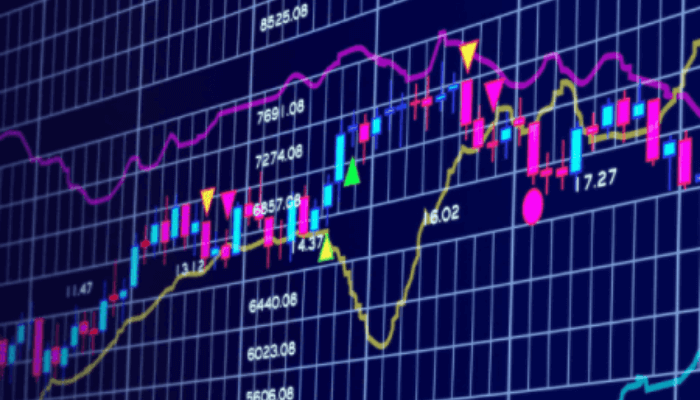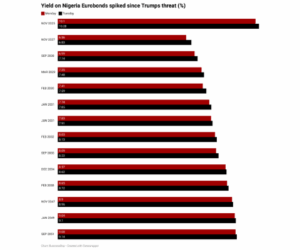…As investors remain bullish
The value of equities traded on the Nigerian Exchange (NGX) jumped to N6.92 trillion in the first eight months of 2025, the highest in 18 years.
The figure more than doubles N3.47 trillion reported for the entire year of 2024, reflecting rising investor confidence in the local bourse.
Out of the N6.92 trillion deal, foreign investors accounted for N1.45 trillion, representing 21.01 percent, while domestic counterparts dominated with N5.46 trillion or 78.99 percent.
Month-on-month (MoM) report shows that in January 2025, the total value of traded equities stood at N607.05 billion, February (N509.47 billion), March (N1.115 trillion), April (N482.04 billion), May (N700.50 billion), June (N778.65 billion), July (N1.815 trillion), and August (N908.38 billion).
“It’s imperative to note the surge in primary market activity as well, validating the broad improvement in liquidity across the capital market,” Abiola Rasaq, financial analyst, told BusinessDay.
“Interestingly, domestic investors accounted for over three-quarters of the trading activities and, more importantly, retail investors accounted for one-thirds of the market liquidity, highlighting the renewed appetite of investors for stocks,” he noted.
Read also: Equities market closes higher by 0.23%
He explained that the improved trading activity on the NGX reflects risk-on sentiment and high investor confidence in the Nigerian capital market.
“This strong appetite of local retail investors may have been spurred by the five consecutive years of positive returns of the NGX All Share Index, validating the superior returns on equities over fixed income, despite the high-interest rate environment,” he said.
“Interestingly, stock brokers and other market participants have also eased market access, leveraging technology and improved customer service – initiatives which have increased youthful participation and overall penetration of the retail market. Again, as stability returns to the FX market, speculative capital, which hitherto were held in FX asset class, is being reallocated, supporting fund flow to the equities market.”
Razaq further said that the improved participation of retail investors is validated by the higher number of active retail investors’ accounts as well as new account openings at the Central Securities Clearing System (CSCS).
“We have also seen improved allocation of funds from institutional investors, especially pension fund managers, which now allocate over 11 percent of their portfolio to domestic equities,” Rasaq noted.
He added that the shortening of settlement cycle to T+2 days and a moderation in fixed-income yields could sustain market liquidity, provided that stakeholders continue to deepen the capital market.
He stressed that in dollar-terms, the overall trading value over the first eight months of the year is still barely $4.7 billion, which is behind peak historical levels when adjusted for exchange rate and inflation.
In the reviewed data, foreign inflows into equities stood at N704.87 billion, while outflows reached N748.23 billion in the eight-month period.
On the other hand, domestic retail investors traded stocks worth N2.332 trillion within the period, while institutional investors recorded N3.130 trillion in transactions, according to the NGX latest report.
“Foreign investors prioritise stability, liquidity, policy consistency and sanctity of contract,” said Sam Onukwue, chairman, Association of Securities Dealing Houses of Nigeria (ASHON), in a recent interview.
“Government must ensure a more predictable foreign exchange regime and address concerns around capital repatriation. A transparent market-driven approach to privatisation will enthrone sound corporate governance in privatised entities and make our market more attractive to foreign investors,” he noted.
The stock market has returned in excess of 42 percent this year as more investors reconsider equities. Amid this development, analysts anticipate that this momentum could continue, filtering into the mid-to-low cap segments of the market.
“Looking ahead, we expect the market to trade with a slightly bullish bias as investors position ahead of the Q3 2025 earnings season. Market sentiment will likely be shaped by the pace of earnings releases, dividend guidance, and macroeconomic policy signals,” Coronation Research analysts said in their recent note.
“While short-term volatility may persist, the medium-term outlook remains constructive, supported by attractive valuations and resilient corporate fundamentals across key sectors.”









